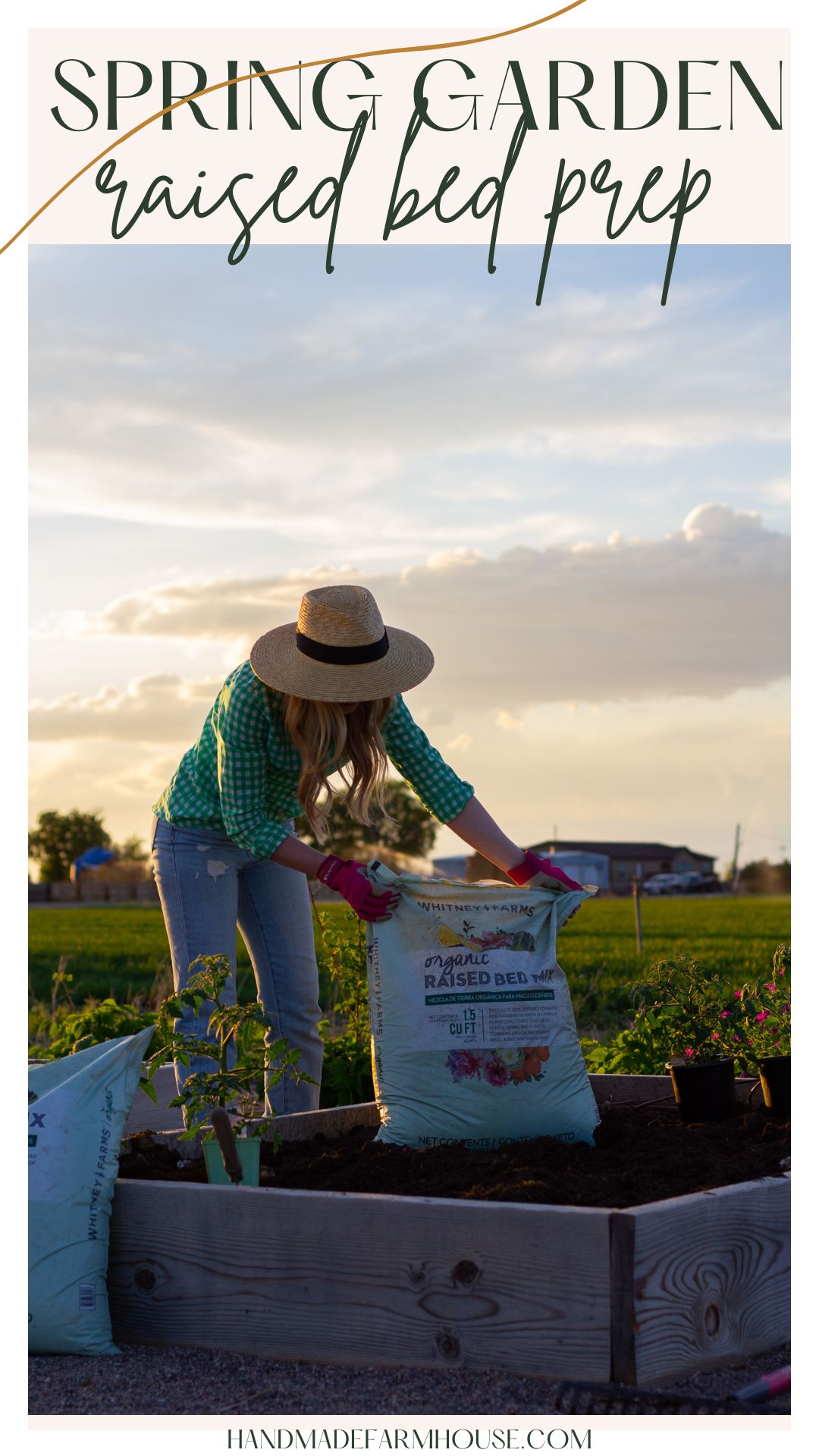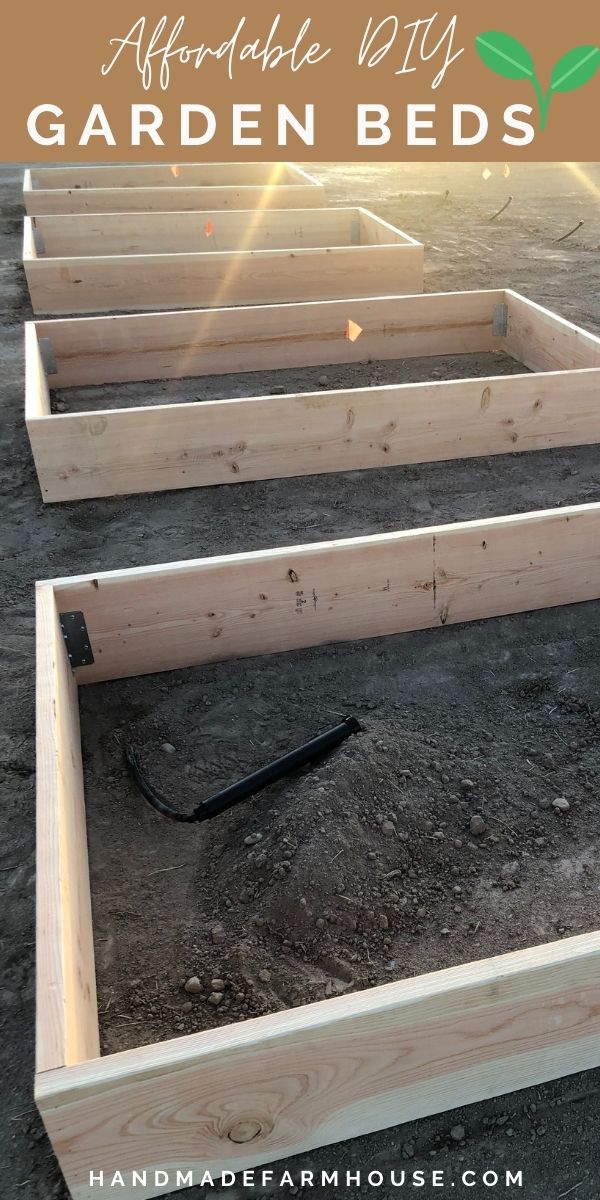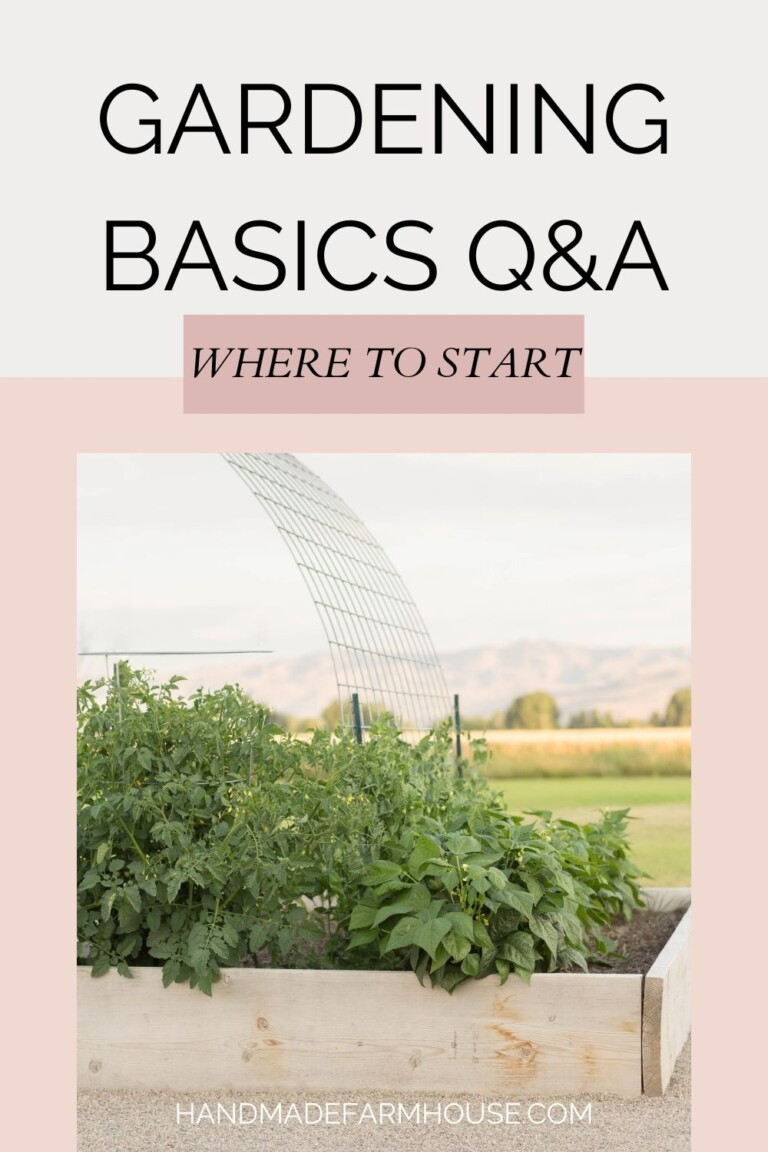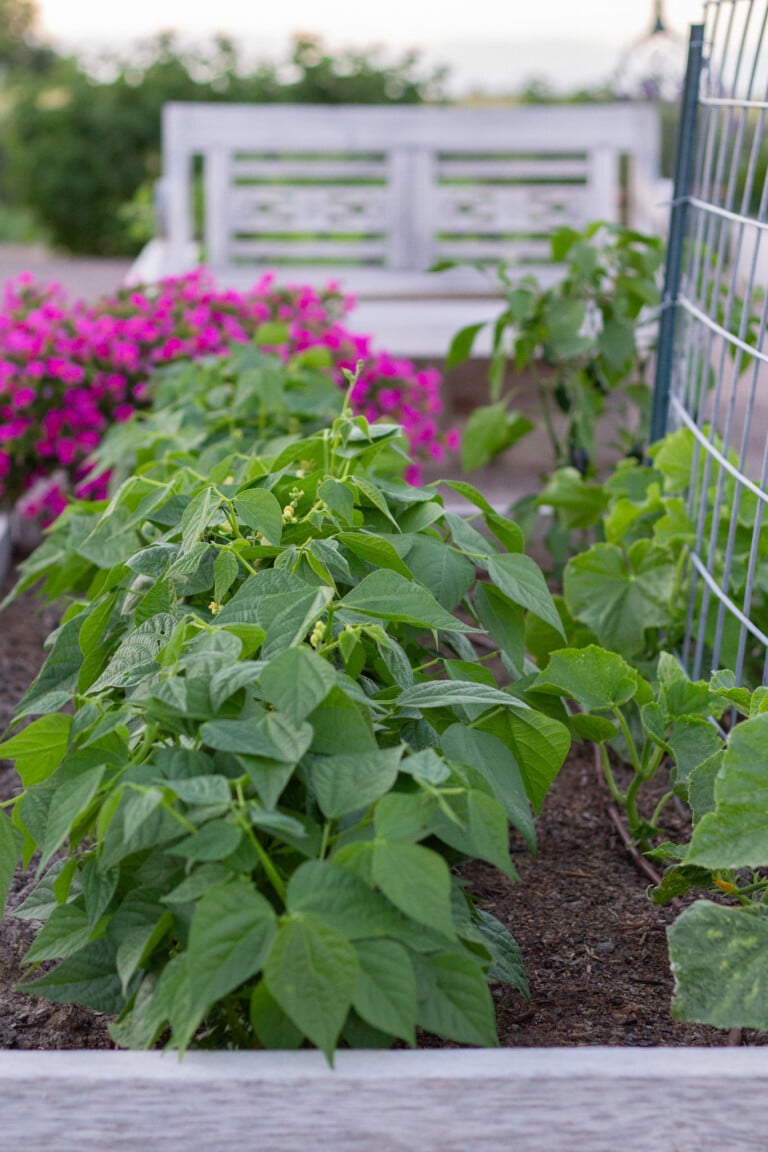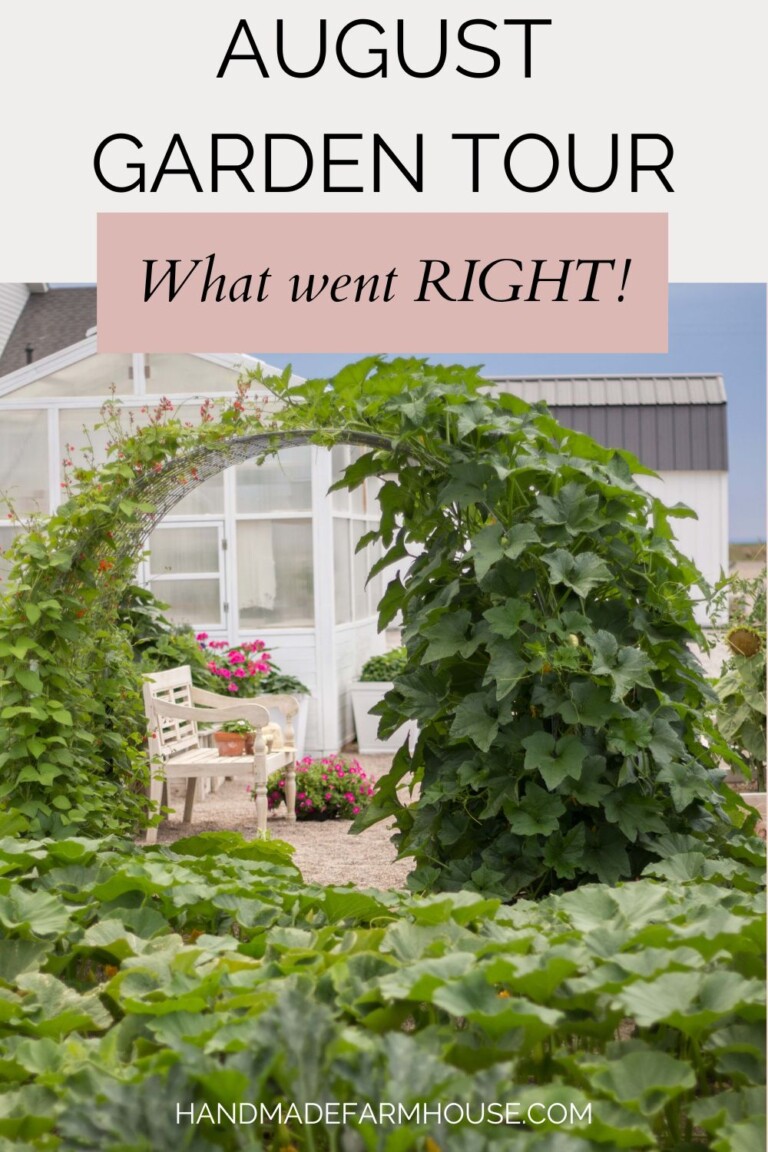Garden season is truly my favorite time of year and I am so eager to begin preparing my spring garden beds for planting!
If you’re new here, you might check out last year’s garden in this post. Be sure not to miss what went wrong and what I learned in this post! I’ve also written about our raised bed DIY project and why I chose raised bed gardening in this post. Gardening is something I have been learning more and more about over the last 7 years or so. I seem to have such a hunger for learning and testing new things in my garden each year! The satisfaction of growing our own fruits, herbs and vegetables to enjoy has brought more happiness than I can say. Most of all, I love gardening because it brings peace and contentment to my life.
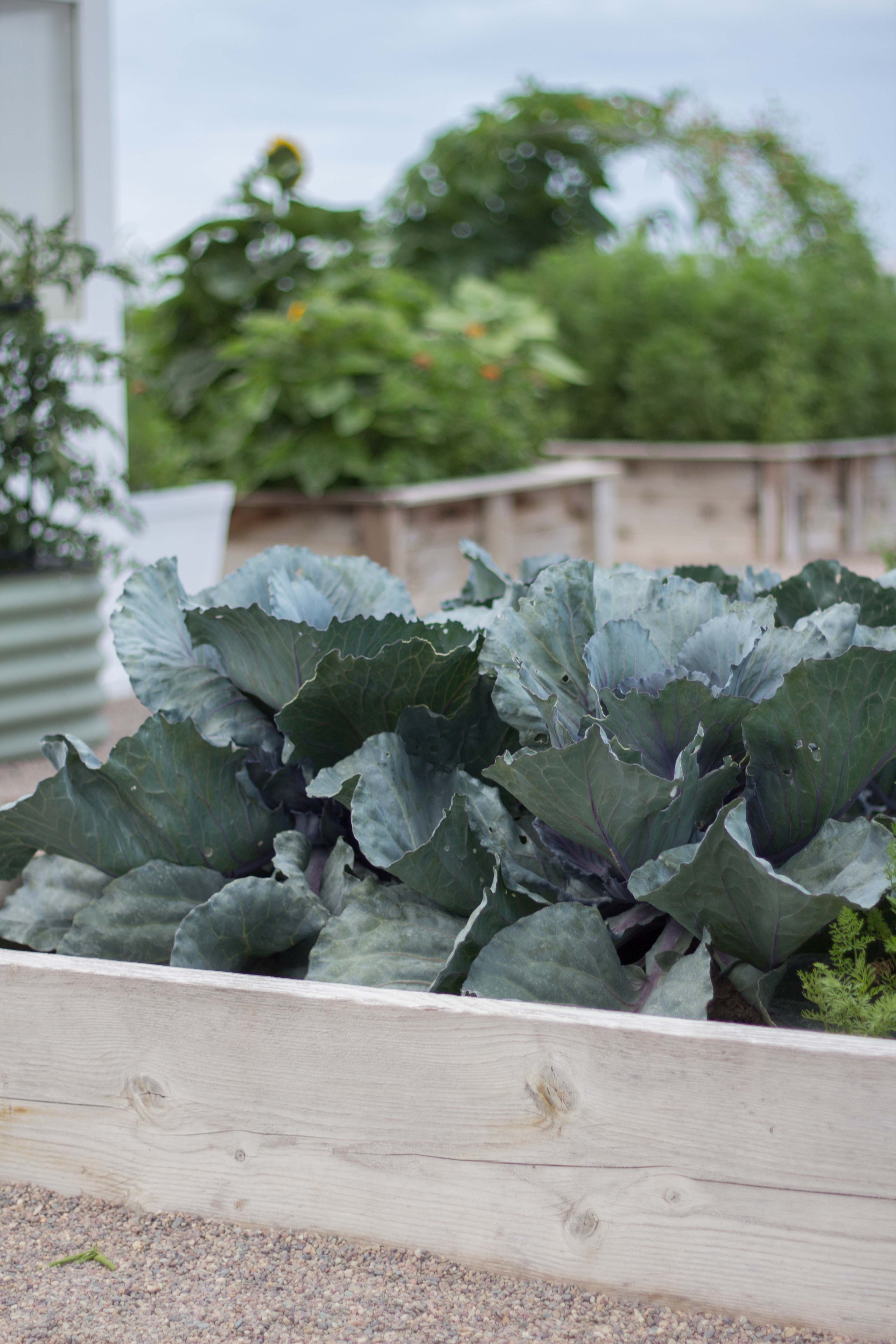
Today I want to share a few tips and lessons I have learned about preparing my spring garden for planting. There are a few important things that can really boost your garden if you’re aware of them.
This year I picked up some Whitey Farms Organic Raised Bed mix from Walmart. Walmart also had the organic potting soil and the All-Purpose Plant Food Organic Fertilizer I needed!
Start with the foundation
Soil conditions can make or break your garden! Trust me, it’s so worth putting in a little bit of work to cultivate a space that’s ideal for planting. Here is a little checklist of things to consider that can really help boost your plant’s strength and give it the best chance for healthy growth:
- What is your soil texture? Is your soil rocky, solid, sandy, clay-like, dry or depleted? Will it be able to hold water?
- Has something else been planted in your garden soil that may have taken a large amount of nutrients from it such as nitrogen? (A corn patch can really eat up a lot of nitrogen in the soil!)
- Does the soil need tilled, composted, or amended? (Amending soil simply means to add something to it to change its nutritional or textural characteristics mostly to improve water retention).
- If you are planting in raised beds, have you checked to make sure the soil is healthy and not depleted of nutrients from last season’s garden or a harsh winter?
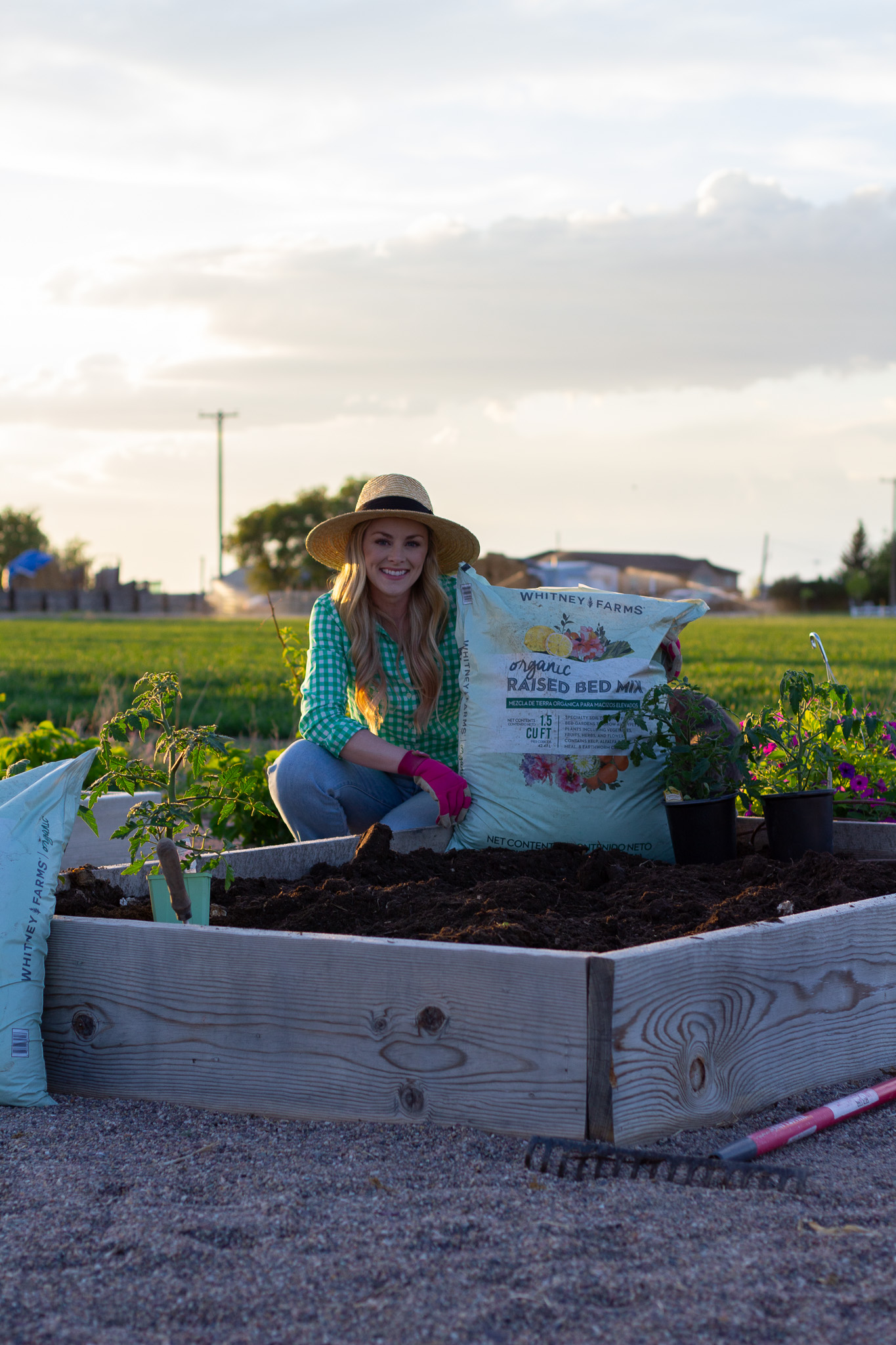
What can I add to my soil to make it healthy and nutrient rich?
I love to use organic fertilizer vs a synthetic fertilizer in my raised garden beds. Organic fertilizers often contain bone meal, kelp meal, earthworm castings and alfalfa meal that feed and boost your plants in an amazing way! This year I am really excited to use Whitney Farms Organic raised bed mix which contains all of the above nutrients, as well as nitrogen, potassium, phosphorus and peat moss, and forest compost.
Before I learned to garden, I really didn’t realize that healthy soil contains a whole ecosystem inside! It is not just sponge that holds water for our plants. Just the work that earthworms and other beneficial insects do in garden soil is truly incredible. The health of your soil encourages that ecosystem to thrive which yields a greater harvest!
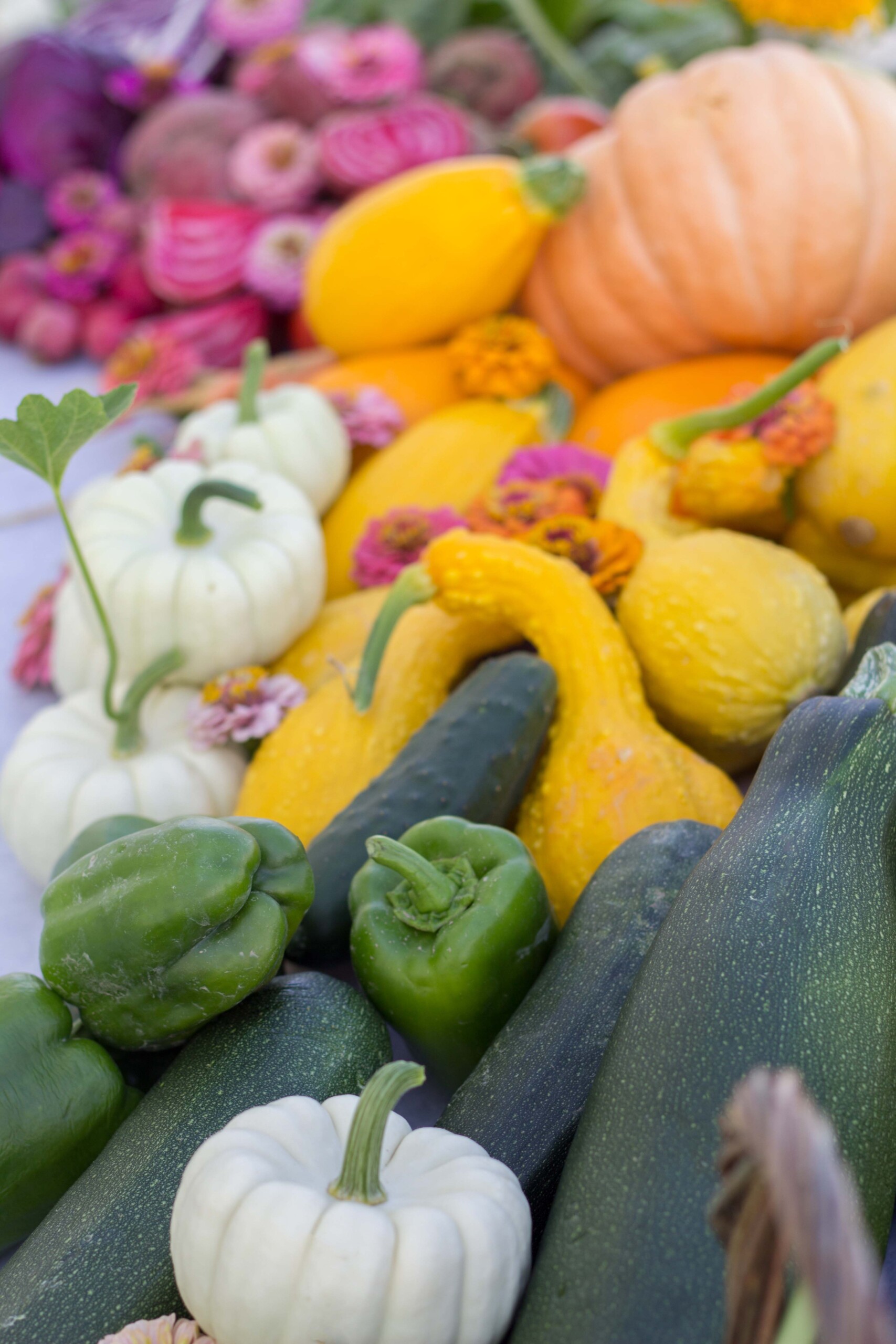
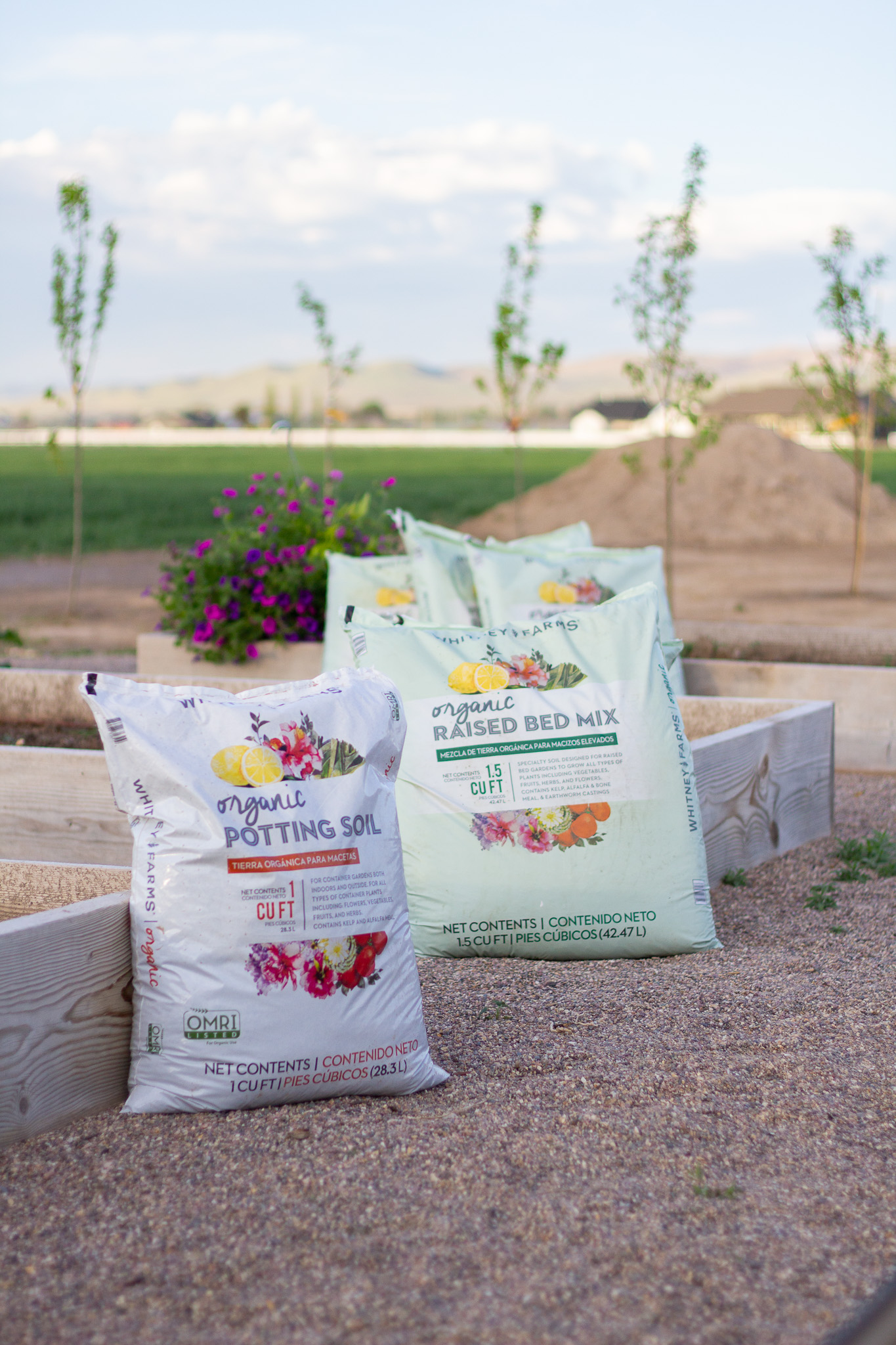
When you prepare your soil in a healthy way, you are building the long-term health of your foundation by enriching it with nutrients that can feed for a couple of months not just days or weeks. Taking the time to learn a little more can result in a much larger harvest and payoff for your efforts!
Shop Organic Fertilizer and Plant food here
Organic fertilizer vs Synthetic fertilizer
Here are a few things I have learned about organic fertilizers in my garden beds.
Organic fertilizers release nutrients to feed slowly over time. Synthetic fertilizers will have a quick release as soon as you water. They will only feed the plant (not enrich the soil) but will eventually damage and deplete the soil. You will have to continue to use synthetic back to back vs starting with organic nutrients that can feed plant and soil for around 8 weeks!
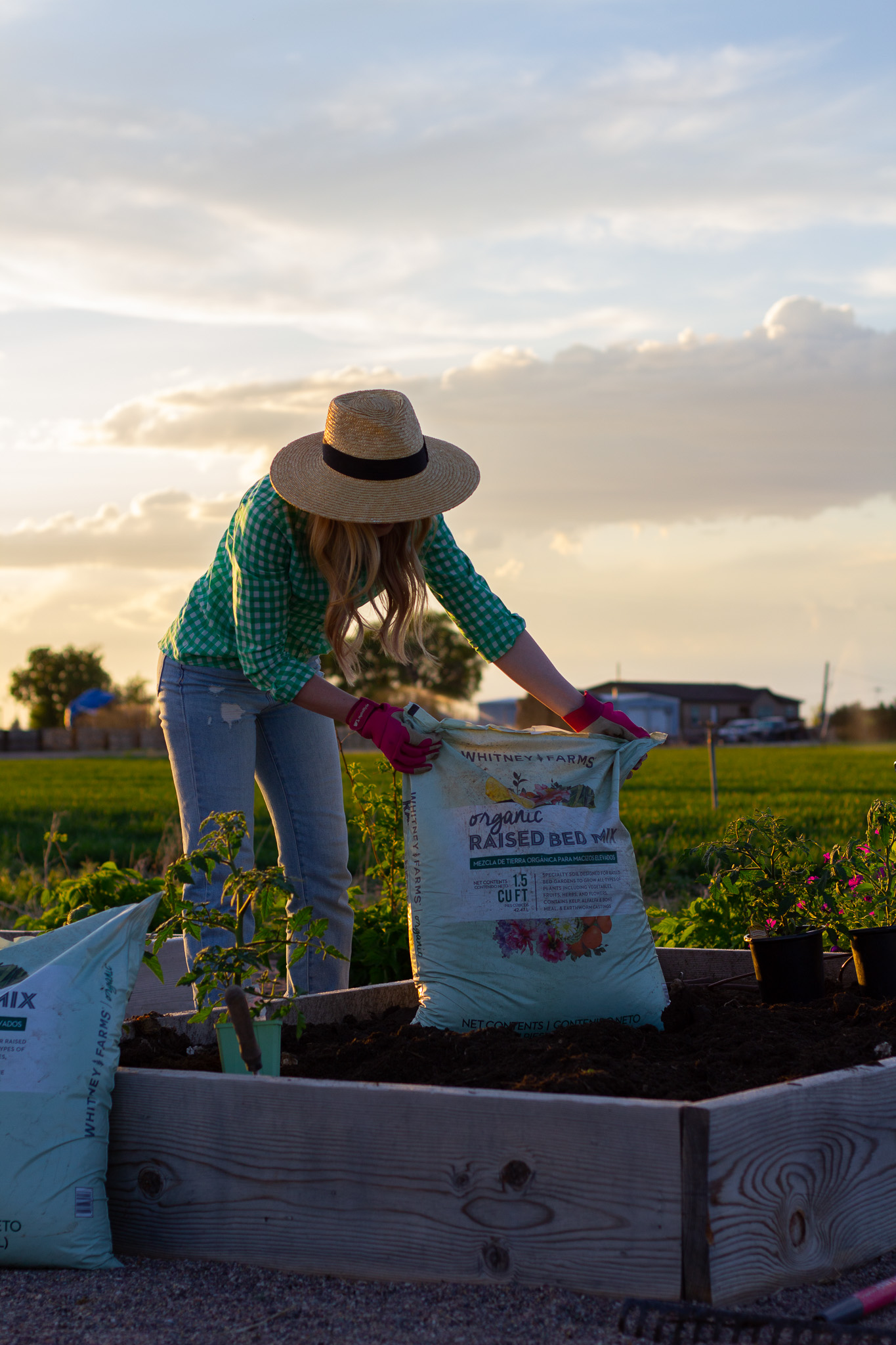
Organic amendments will contain a much larger range of nutrients. The organic nutrients in your soil will be available in the soil for a longer period of time. They will continue to feed your plants as they grow from seed to harvest.
Using a synthetic fertilizer might give you an immediate change. Don’t let this fool you into thinking it was the best one to use for your plant! Unfortunately, it may seem like an instant improvement due to quick release when water hits. However, the organic fertilizer will consistently feed throughout the season through a slow nutrient release.
TIP: Fish emulsion or bone meal are an organic option if you need to correct a deficiency quickly.
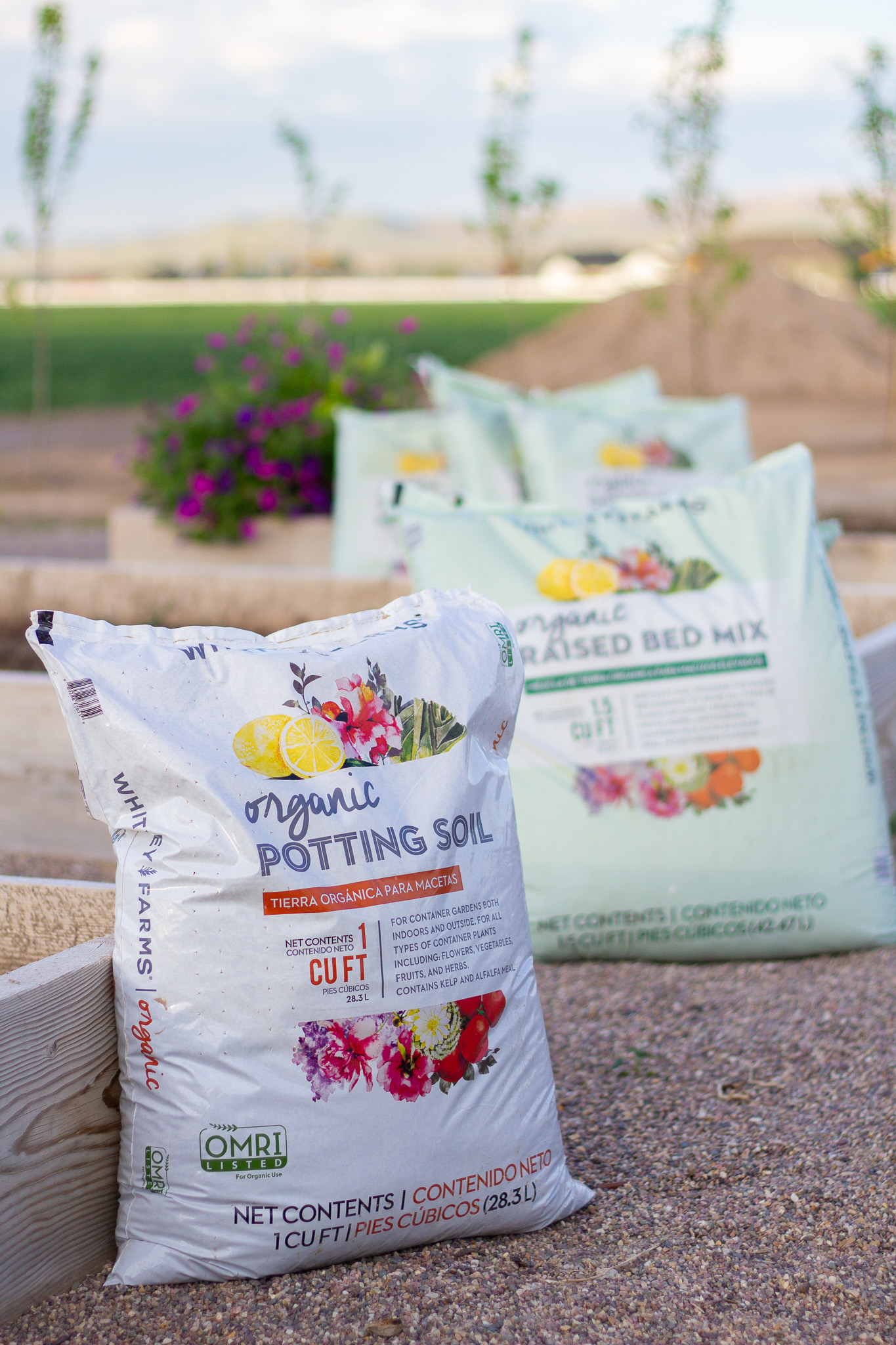
Shop helpful garden tools and supplies
Preparing raised beds vs an in-ground garden for planting
Is compost, soil amendment and fertilizer a one-time job in the garden? NO! Why not? Every time you grow in your garden, the plants are taking and you have to replenish what’s been used.
Compost can help improve soil health from the nutrient profile it offers. It also helps so much with moisture content and texture of soil! Compost alone may not be enough for your garden if you are constantly growing. It will need a fertilizer to replenish the soil. This year I am excited to use Whitney Farms Organic Raised Bed Mix with Fertilizer to prep my raised garden beds for planting.
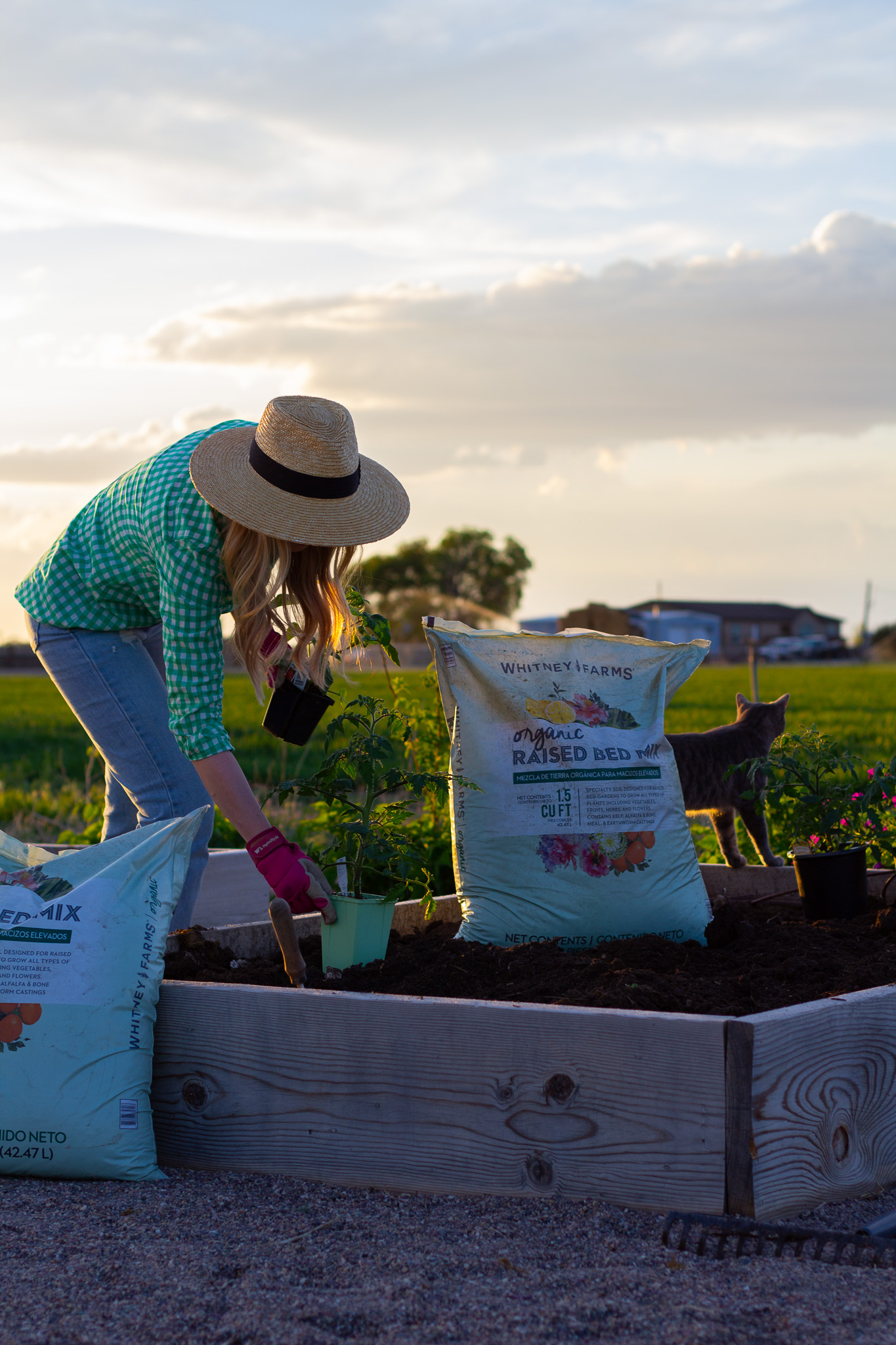
Soil testing for home gardeners
If you are new to gardening you may be unsure of the soil health where you’re planting. You can definitely watch your plants to see if they are lacking in growth or production and do some investigating. Typically if you have healthy soil texture, water, sunlight and some fertilizer, your plants should be doing pretty great.
When they’re not, here are a few more technical ways you can dive in and investigate what can be improved. Don’t give up, LEARN!
Start with a soil texture test. Grab a handful of garden soil and moisten it. Tighten it in your hand and roll it into a ball. Now squeeze it out through your index finger and thumb. Is the soil staying in a ribbon? Is it dry and falling apart? Find out if your soil has too much clay, sand or is too dry.
Doing a yearly soil test is a great idea! This will help you get an idea of where your soil is at and what it really might be lacking. You can grab a test at your local garden store or even on Amazon.
Deficiencies in soil such as calcium, nitrogen, phosphorus and potassium can cause a difference in your harvest! It an affect the end result of your vegetables and even be the reason for stunted growth or low productivity.
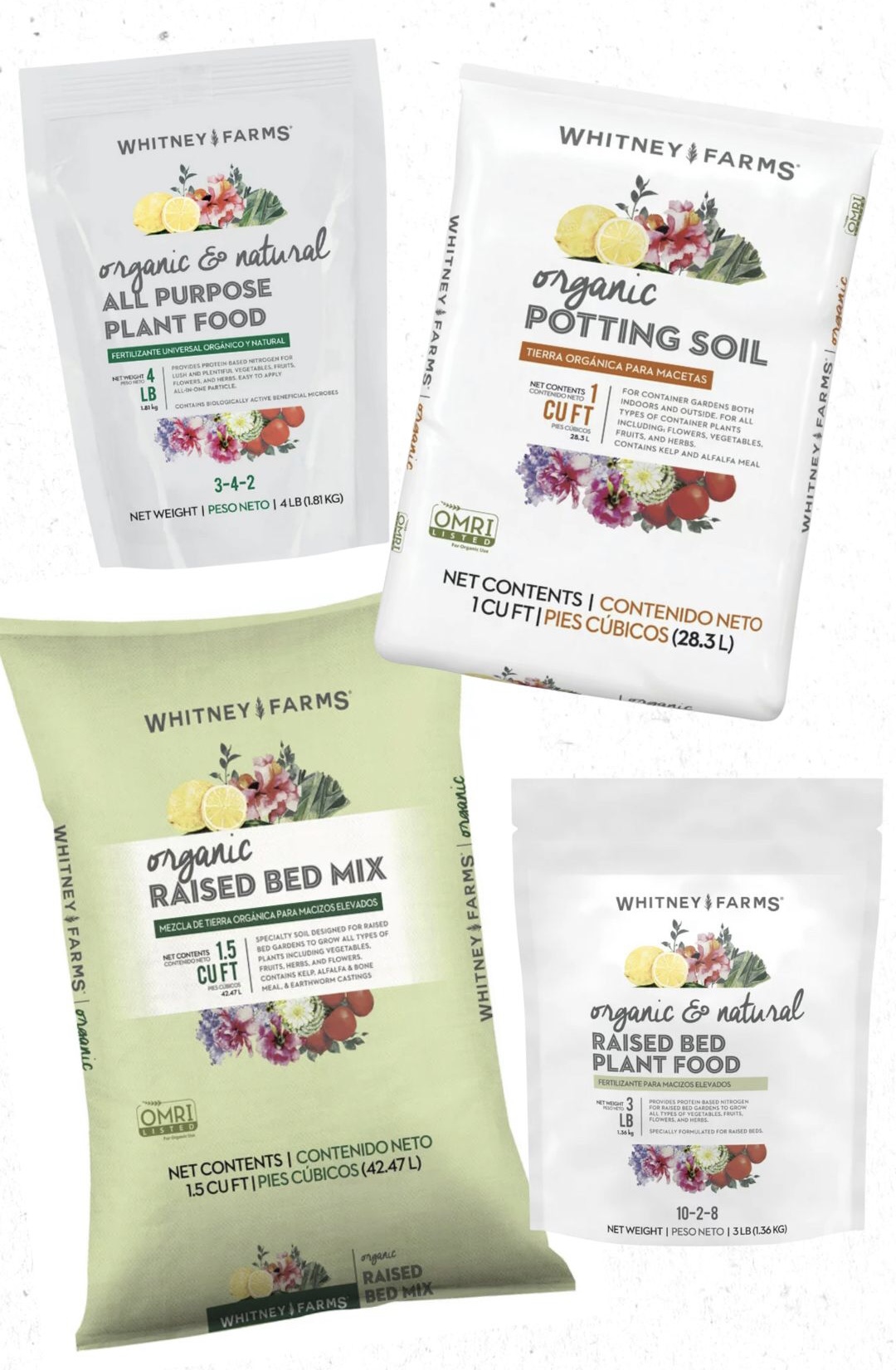
Thank you so much to Walmart and Whitney Farms for sponsoring today’s garden post. This post contains affiliate links. You can read my full disclosure here.
Did you enjoy this post on Preparing my Spring Garden Beds for Planting? PIN IT to remember for later!
